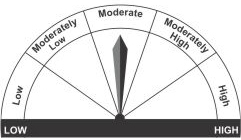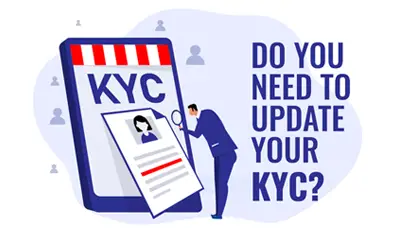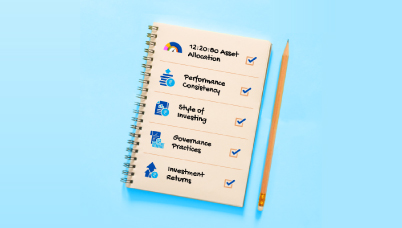Impact of GST On Your Mutual Fund Investments
Posted On Thursday, Jun 29, 2017
Goods and Services Tax (GST) is a comprehensive, multi-stage, destination based tax regime that will be levied on every value addition throughout India from July 1, 2017, replacing the taxes levied by the central and state governments. The new tax regime, governed by a GST Council under the chairmanship of Union Finance Minister Mr. Arun Jaitley, tries to address some of the concerns of the end buyers, as the liability passes on, in indirect taxes. GST sanctions a provision of Input Tax Credit which allows to claim the tax that has already been paid, so that the final liability could be reduced. Also GST would help the business community get rid of multiple taxations such as Excise, VAT and Service Tax and would redress the concerns of interstate businesses as presently there are different VAT regulations in different states.
Under GST, good and services are going to be taxed at the following rates: 0%, 5%, 12%, 18% and 28%. With 0% tax being levied on basic necessities like rice, wheat, etc. and taxes being reduced in commodities such as spices, tea, coffee etc., we can very well expect a relief in the prices of these commodities. Here is a table that outlines the tax structure on a few main items that affect all of us as consumers:
| Slabs | New GST Rates | Current Tax Rates | Products Taxed under the Slab |
|---|---|---|---|
| 1 | 0% | VAT levied in some states | Food grains, Cereals, Milk, Curd, etc. |
| 2 | 5% | Up to 9% | Products of Mass Consumption such as Spices, Tea, Coffee, Edible Oils, etc. |
| 3 | 12% | 9%-15% | Computers, Processed Food Items, etc. |
| 4 | 18% | 15%-21% | Financial Services, Oil, Toothpaste, Refrigerator, Smartphones, etc. |
| 5 | 28% | 21% | Dining at your favorite 5 star hotel, Luxury Cars, Aerated Drinks, Tobacco Products, etc. |
Overall GST will not impact mutual fund investors specifically, except a hike in the total expense ratio (TER). Under the GST regime, Quantum Asset Management Company (QAMC) will pay a tax of 18% on the investment management fees that we earn which was 15% till now; and is a part of the expense ratio. TER charged for managing funds and distributor commissions (in case of regular plans) etc., would increase based on the call each fund house takes (TER for mutual funds varies between 1.25% and 2.75%). Since tax is eventually borne by investors, their expenses too would go up marginally, as reflected by the increased expense ratios of schemes. With the increase in tax from 15% to 18%, the impact of GST on mutual funds would be felt..
Given below is a brief on the changes in the expense ratios of various funds at Quantum Mutual Fund, post GST implementation (July 01, 2017).
| Name of the Fund | Direct Plan - Total Expense Ratio (TER) (inclusive Statutory Levies and Taxes) till 30/06/2017 | Direct Plan - Total Expense Ratio (TER) (inclusive Statutory Levies and Taxes) from 01/07/2017 | Regular Plan - Total Expense Ratio (TER) (inclusive Statutory Levies and Taxes) till 30/06/2017 | Regular Plan - Total Expense Ratio (TER) (inclusive Statutory Levies and Taxes) from 01/07/2017 |
|---|---|---|---|---|
| Quantum Long Term Equity Fund | 1.25% | 1.29% | 1.43% | 1.46% |
| Quantum Tax Savings Fund | 1.25% | 1.29% | 1.43% | 1.46% |
| Quantum Liquid Fund | 0.25% | 0.26% | 0.31% | 0.32% |
| Quantum Dynamic Bond Fund | 0.66% | 0.67% | 0.77% | 0.79% |
| Quantum Equity Fund of Fund | 0.49% | 0.51% | 0.61% | 0.63% |
| Quantum Gold Fund - ETF | 1.00% | 1.03% | NA | NA |
| Quantum Nifty - ETF | 0.25% | 0.26% | NA | NA |
| Quantum Gold Saving Fund | 0.10% | 0.11% | 0.22% | 0.22% |
| Quantum Multi Asset Fund | 0.25% | 0.26% | 0.37% | 0.38% |
Indirect Impact of GST
While there is a direct impact of GST on the expense ratios of a scheme, as seen above, the exit loads of the scheme will also change as a result of GST.
From your perspective, as an investor, nothing changes in terms of the amount of exit load you need to bear. However since the rate of tax has gone up from 15% to 18% the amount of exit load that used to be credited back into the scheme will reduce by that 3%.
As an example, let’s say we used to collect Rs. 100 as exit load from an Investor and the Service Tax on the same is 15%, this means that Rs. 15 would be paid to the government as tax and the remaining Rs. 85 would be credited back into the scheme. In the GST regime, since the percentage of tax is moving up from 15% to 18% the outflow to the government will be Rs. 18 now instead of the earlier Rs. 15. Therefore only Rs. 82 will be credited back into scheme instead of the earlier Rs. 85.
Most financial services are taxed at 18% under the new GST regime, therefore the Distributor Commission paid to the Distributors will be charged with 18% GST instead of 15% Service Tax charged currently.
If you have any queries on this, please feel free to write to us at [email protected] and we will be happy to answer your queries.
| Name of the Scheme | This product is suitable for investors who are seeking* | Riskometer |
| Quantum Long Term Equity Fund (An open-ended equity scheme) | • Long term capital appreciation • Investments in equity and equity related securities of companies in S&P BSE 200 index |  Investors understand that their principal will be at Moderately High Risk |
| Quantum Tax Saving Fund (An Open-ended Equity Linked Savings Scheme) | • Long term capital appreciation • Investments in equity and equity related securities of companies in S&P BSE 200 index and to save tax u/s 80 C of the Income Tax Act. Investments in this product are subject to a lock-in period of 3 years | |
| Quantum Equity Fund of Funds (An Open-ended Equity Fund of Funds Scheme) | • Long term capital appreciation • Investments in portfolio of open-ended diversified equity schemes of mutual funds registered with SEBI whose underlying investments are in equity and equity related securities of diversified companies | |
| Quantum Multi Asset Fund (An Open-ended Fund of Funds Scheme) | • Long term capital appreciation and current income • Investments in portfolio of schemes of Quantum Mutual Fund whose underlying investments are in equity and equity related securities of companies, debt and money market instruments and physical gold | |
| Quantum Nifty ETF (An Open- ended Exchange Traded Fund) | • Long term capital appreciation • Investments in equity and equity related securities of companies in Nifty 50 Index | |
| Quantum Gold Fund ETF (An Open-ended Exchange Traded Fund- Gold) | • Long term returns • Investments in physical gold | |
| Quantum Gold Savings Fund (An Open-ended Fund of Funds Scheme) | • Long term returns • Investments in units of Quantum Gold Fund – Exchange Traded Fund whose underlying investments are in physical gold | |
| Quantum Dynamic Bond Fund (An Open-ended Debt Scheme with Defined Credit Exposure and Dynamic Maturity Profile) | • Regular income over short to medium term and capital appreciation • Investment in Debt / Money Market Instruments / Government Securities |  Investors understand that their principal will be at Moderate Risk |
| Quantum Liquid Fund (An Open- ended Liquid Scheme) | • Income over the short term • Investments in debt / money market instruments |  Investors understand that their principal will be at Low risk |
* Investors should consult their financial advisers if in doubt about whether the product is suitable for them.
Disclaimer, Statutory Details & Risk Factors:
The views expressed here in this article are for general information and reading purpose only and do not constitute any guidelines and recommendations on any course of action to be followed by the reader. Quantum AMC / Quantum Mutual Fund is not guaranteeing / offering / communicating any indicative yield on investments made in the scheme(s). The views are not meant to serve as a professional guide / investment advice / intended to be an offer or solicitation for the purchase or sale of any financial product or instrument or mutual fund units for the reader. The article has been prepared on the basis of publicly available information, internally developed data and other sources believed to be reliable. Whilst no action has been solicited based upon the information provided herein, due care has been taken to ensure that the facts are accurate and views given are fair and reasonable as on date. Readers of this article should rely on information/data arising out of their own investigations and advised to seek independent professional advice and arrive at an informed decision before making any investments.
Mutual fund investments are subject to market risks read all scheme related documents carefully.
Please visit – www.QuantumMF.com to read scheme specific risk factors. Investors in the Scheme(s) are not being offered a guaranteed or assured rate of return and there can be no assurance that the schemes objective will be achieved and the NAV of the scheme(s) may go up and down depending upon the factors and forces affecting securities market. Investment in mutual fund units involves investment risk such as trading volumes, settlement risk, liquidity risk, default risk including possible loss of capital. Past performance of the sponsor / AMC / Mutual Fund does not indicate the future performance of the Scheme(s). Statutory Details: Quantum Mutual Fund (the Fund) has been constituted as a Trust under the Indian Trusts Act, 1882. Sponsor: Quantum Advisors Private Limited. (liability of Sponsor limited to Rs. 1,00,000/-) Trustee: Quantum Trustee Company Private Limited. Investment Manager: Quantum Asset Management Company Private Limited. The Sponsor, Trustee and Investment Manager are incorporated under the Companies Act, 1956.
Related Posts
-

Do You Need to Update Your KYC/Modify KYC?
Posted On Friday, Apr 26, 2024
New KYC Regulation Effective April 1st 2024
Read More -

Are You Stuck in the Past or Ready for a Secure Future?
Posted On Wednesday, Jun 29, 2022
The ever-growing number of mutual fund schemes on offer has made it challenging for investors to select the best and most suitable one.
Read More -

Received an Increment? Step-up Your SIPs
Posted On Wednesday, Jun 01, 2022
For instance, let’s assume that you have registered for a monthly SIP of Rs 5,000 for a 10-year period and later on try to step-up the SIP at an annual frequency, say by Rs 500. In the first year...
Read More



